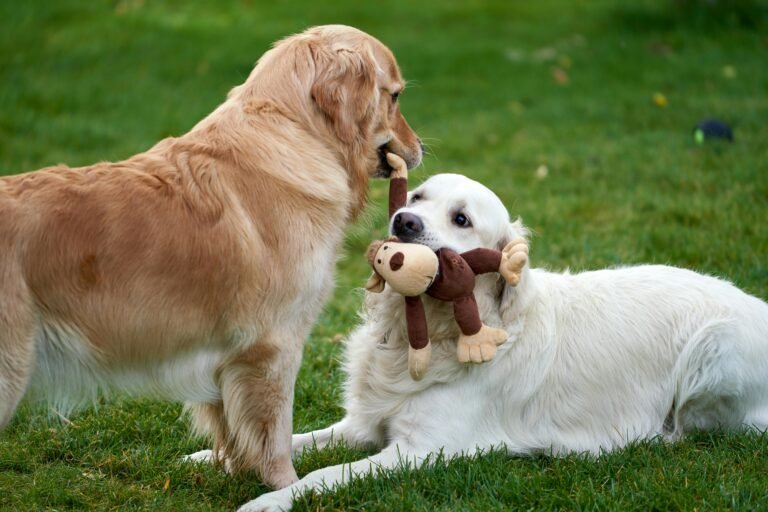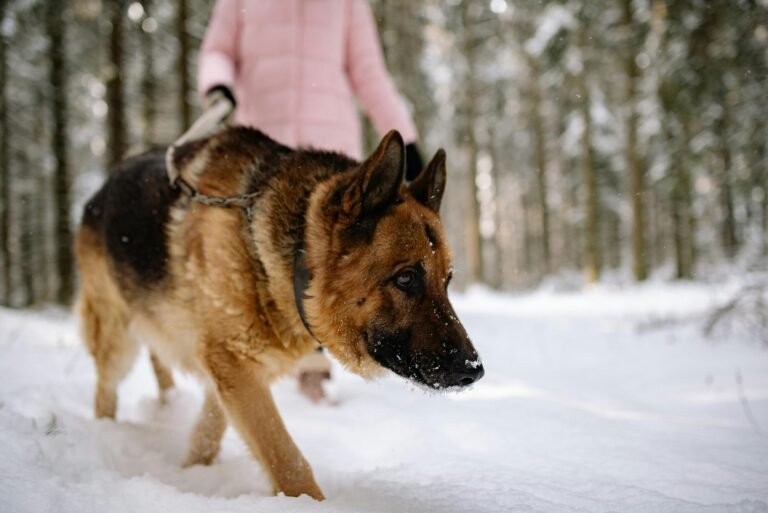Introduction
We’ve all been there — you accidentally step on your dog’s paw, raise your voice during a stressful moment, or leave them home longer than usual. You return to those big, soulful eyes and wonder: “Is my dog mad at me?” It’s easy to imagine that hurt feelings or resentment might linger. But do dogs actually hold grudges the way humans do? The short answer: no — not really. Dogs remember, but they don’t resent. Instead, they live through emotion, not ego — and that’s part of what makes their forgiveness so pure.
The Science of Memory in Dogs
To understand whether dogs hold grudges, we first need to look at how their memory works. Dogs don’t form long-term, narrative memories like humans. Instead, they rely on associative memory — linking experiences to emotions or outcomes.
For example, your dog doesn’t remember why you left for work three hours late last Tuesday. But they remember how it felt — the sadness of being alone or the excitement of hearing your car pull into the driveway. Their world is emotional, not chronological.
This means dogs are more likely to connect actions with immediate feelings — comfort, fear, trust, or joy — rather than plotting revenge or harboring resentment.
What “Grudges” Look Like to Humans (But Not to Dogs)
When we say a dog is “holding a grudge,” we’re often projecting human emotions onto them. You might notice your dog ignoring you after an unpleasant event, but that doesn’t mean they’re sulking or plotting payback. What’s really happening is simpler:
- Confusion: They’re unsure why something negative happened and need reassurance.
- Mistrust: If a scary event repeats (like loud scolding or forced handling), they may associate you with discomfort.
- Stress response: Dogs who retreat or avoid after conflict aren’t angry — they’re coping.
In most cases, time, calmness, and positive interaction are all it takes to restore balance. Dogs are emotional empaths — not emotional accountants.
Dogs Feel — But They Don’t Dwell
Dogs absolutely feel emotions such as joy, fear, sadness, and affection. Studies using brain imaging show that dogs experience emotional responses in the same regions of the brain as humans. But one thing they lack is the neocortex-driven rumination — the ability to replay events, judge motives, and dwell on unfairness.
In other words, dogs feel the sting of a negative moment but let it go quickly. Once safety and trust are reestablished, they move forward without resentment. That’s why dogs can forgive so easily after conflicts or mistakes — they’re wired to live in the present.
How Long Do Dogs “Remember” Negative Experiences?
While dogs don’t hold grudges, they do remember emotional outcomes. Their memory retention depends on the intensity of the experience and the associations built around it. For instance:
- If you accidentally bump your dog once, they’ll likely forget within minutes after reassurance.
- If a certain action repeatedly causes fear (like shouting or harsh handling), your dog may avoid you temporarily — not from anger, but self-protection.
Over time, consistent positive reinforcement replaces negative associations. That’s how trust heals — through repetition and patience.
Signs Your Dog Is Still Hesitant (But Not Holding a Grudge)
If your dog seems distant after a stressful event, it’s not revenge — it’s uncertainty. Look for these signs of temporary hesitation:
- Avoiding eye contact or moving away when you approach.
- Hesitation before taking treats or engaging in play.
- Tense body language (ears back, tail low) when near you.
- Seeking comfort from other family members first.
These signals mean your dog needs reassurance that everything’s okay — not space to “cool off.” Comforting tones, gentle gestures, and familiar routines help reset their trust faster than words ever could.
Forgiveness in Action: How Dogs Let Go
Dogs are masters of emotional reset. Once the environment feels safe again, they return to affection almost instantly. This forgiveness is instinctive — a survival trait from pack life, where cooperation mattered more than grudges.
Here’s what canine forgiveness often looks like:
- They approach with cautious curiosity after conflict.
- They offer submissive gestures — lowered ears, gentle licking, or leaning in.
- They seek contact — sitting close, bringing a toy, or making soft eye contact.
- They resume play — the ultimate sign of emotional reset.
When dogs forgive, they don’t need an apology. They just need reassurance that the bond is still intact.
Rebuilding Trust After a Negative Moment
Even though dogs don’t hold grudges, they do learn from emotional patterns. If they consistently experience fear or confusion in your presence, they may become cautious. The good news: trust can always be rebuilt. Here’s how:
- Stay calm: Dogs read energy more than words. Use a soft tone and relaxed posture.
- Offer choice: Let them approach you when ready — forcing contact can delay trust.
- Reintroduce play: Play activates joy and resets emotional balance.
- Reward curiosity: Praise and treat small steps of confidence.
- Be consistent: Predictable routines rebuild security faster than apologies.
Dogs forgive easily when they see predictable love — it’s how they confirm, “You’re safe again.”
Why Dogs Forgive Easier Than Humans
Humans carry complex emotions — pride, resentment, guilt — that often prevent true forgiveness. Dogs don’t. They live moment to moment, measuring safety through body language and tone, not words or grudges. Their loyalty is emotional, not conditional.
This is why a rescue dog can learn to trust again after trauma, or why your pup forgives you minutes after an accidental scolding. To them, forgiveness isn’t a moral choice — it’s an emotional reset. Their hearts are wired for resilience, not revenge.
The Role of Positive Reinforcement in Healing
If your dog has experienced fear, focus on creating a consistent flow of positive experiences. Reward calmness, patience, and curiosity. Over time, the brain rewires — old fears fade, replaced by confidence. This isn’t just training; it’s emotional therapy.
Simple rituals like soft greetings, gentle petting, and interactive games go a long way. The more positive experiences you build, the less space there is for fear-based memories to linger.
When Past Trauma Lingers
Rescue dogs or those with abusive pasts may struggle longer to trust — not from grudges, but deep-seated fear. Their brains have learned to expect pain from humans. In these cases, forgiveness takes time and structured rehabilitation. Working with a certified behaviorist or fear-free trainer can make all the difference.
What looks like “resentment” is really self-preservation. With empathy, patience, and safety, even the most cautious dogs learn to let go and love again.
Conclusion
Dogs don’t hold grudges — they hold onto feelings. But those feelings change quickly when love, safety, and trust return. They forgive not because they forget, but because their emotional world prioritizes connection over pride. That’s the quiet wisdom of the canine heart.
So the next time you accidentally hurt your dog’s feelings, don’t worry — you don’t need to say sorry in words. Just show it through calmness, kindness, and consistency. Within moments, they’ll be back at your side, tail wagging, heart open — ready to move forward, as they always do.



